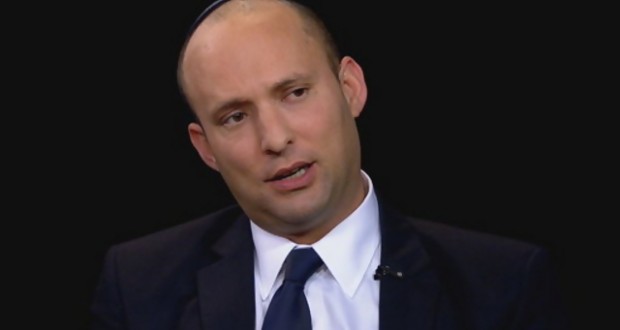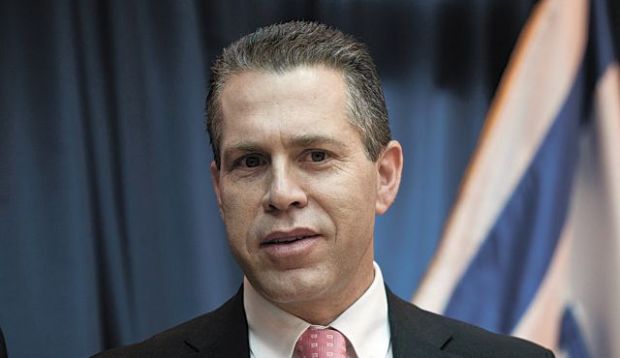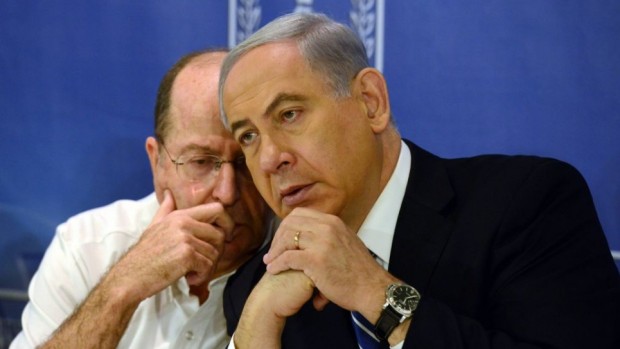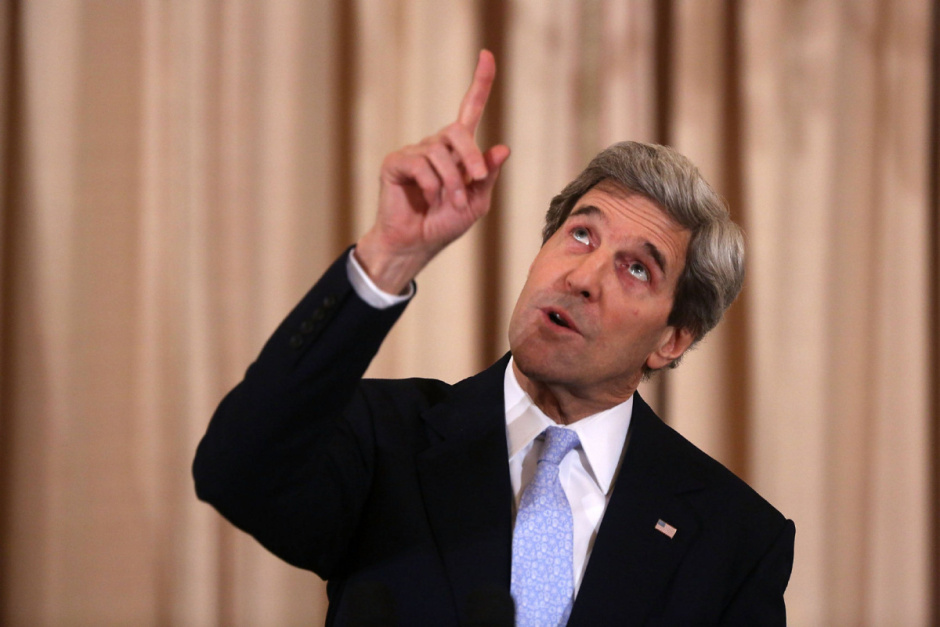John Kerry, the U.S. secretary of state, has been harshly and unfairly criticized by two right-wing Israeli cabinet ministers for having stated an obvious and compelling truth. Their tendentious comments reflect badly on their understanding of fundamental realities in the Middle East.
Speaking at the State Department the other day, Kerry called for a resumption of peace talks between Israel and the Palestinian Authority, suggesting that the Arab-Israeli conflict was a recruiting tool for Islamic State.
“There wasn’t a leader I met in the region who didn’t raise with me spontaneously the need to try to get peace between Israel and the Palestinians, because it was a cause of recruitment and of street anger and agitation …” Kerry said.

“People need to understand the connection of that,” he added. “And it has something to do with humiliation and denial and absence of dignity.”
Kerry’s observations are not like a bolt out of the blue. Nor are they particularly original. Anyone with the slightest knowledge of the Middle East knows that Israel’s long-running confrontation with the Palestinians is a source of anger, bitterness, resentment and vengeance among Arabs, be they Egyptians, Syrians, Iraqis, Moroccans or Lebanese.
Tapping into the Arab-Israeli imbroglio, radical groups like Islamic State harp on this issue, among others, to their advantage. They use it to recruit and brainwash their acolytes. The tactic works brilliantly, convincing new recruits that they have something of value to contribute by joining Islamic State.
But Economy Minister Naftali Bennett, an extremist whose ultra-nationalist Jewish Home Party is part of Prime Minister Benjamin Netanyahu’s coalition government, and Communications Minister Gilad Erdan, a major figure in Netanyahu’s Likud Party, just don’t get it.

“Even when a British Muslim beheads a British Christian, someone will always blame the Jew,” wrote Bennett in a bizarre comment on his Facebook page.
Blasting Kerry, Erdan sarcastically wondered whether Islamic State would lay down its weapons should Israel and the Palestinian Authority resume talks, which collapsed last April after nine months of on-again, off-again discussions.
“I actually respect Kerry and his efforts,” Erdan wrote on Facebook, “but every time he breaks new records of showing a lack of understanding of our region and the essence of the conflict in the Middle East, I have trouble respecting what he says.”
In the face of their strange remarks, the State Department’s deputy spokesperson, Marie Harf hit back. “What (Kerry) said was that during his travels to build a coalition against Islamic State, he was told that should the Israeli-Palestinian conflict be resolved, the Middle East would be a better place,” she said.

Pointing a finger at Bennett, Harf accused him of distorting Kerry’s cogent analysis for “political gain.” Tellingly enough, Israeli Foreign Minister Avigdor Liberman, Bennett’s ideological ally, levelled the same accusation against Bennett.
This is not the first time Kerry has come under fire from hawkish members of Netanyahu’s cabinet, all of whom oppose a two-state solution to the Palestinian problem. Nine months ago, Defence Minister Moshe Yaalon, belittled Kerry’s peacemaking efforts, claiming he was “inexplicably obsessive” and “messianic” for even attempting to resolve Israel’s conflict with the Palestinians.
Say what you will about Yaalon, but at least he’s doesn’t try to sugarcoat his opinions like Netanyahu, who’s insincere and disengenuous.
A few days ago, in a frank disclosure that should disabuse those who believe that this Israeli government is willing or capable of making real peace with the Palestinians, Yaalon said he prefers conflict management to conflict resolution.
Claiming that the current situation best suits Israel’s interests, Yaalon said, “I’m not seeking (a) solution, I am looking for a way to manage the conflict and the relations (with the Palestinians) in a way that strengthens our interests. We need to free ourselves from the conception that everything will enter the framework of a (Palestinian) state.”
Suggesting that Israel would agree to no more than autonomy — the right to collect their own garbage, for example — Yaalon observed, “From my perspective, let them call it the Palestinian empire. What do I care? It’s autonomy — if it ends up being a demilitarized area. It’s not the status quo, it’s creating a tolerable modus vivendi that will serve our interests.”
Yaalon is dreaming in technical color if he images that the Palestinians will be content with autonomy while Israel occupies much of the West Bank and creates “facts on the ground,” as it has been doing since the 1967 Six Day War.

The Palestinian Authority has presented the United Nations Security Council with a sensible resolution setting November 2016 as the deadline for Israel to withdraw from the West Bank. This withdrawal would take place after Israel and the Palestinian Authority have worked out the details within the framework of direct talks.
Israel’s ambassador to the UN, Ron Prosor, claims that the Palestinians’ strategy is misguided and a non-starter because it is grounded in “unilateral action.” This is a ridiculous argument, since Israel’s settlement project in the West Bank for the past 47 years has been based on nothing less than unilateralism and disregard for international public opinion.
Bennett and Erdan are wallowing in perilous self-delusion by dismissing Kerry’s thesis that the Arab-Israeli dispute draws in volunteers to Islamic State, and Yaalon is fooling himself by believing that Israel can maintain the status quo in the West Bank without dire consequences.
This piece appeared in The Times of Israel on Oct. 24, 2014.
